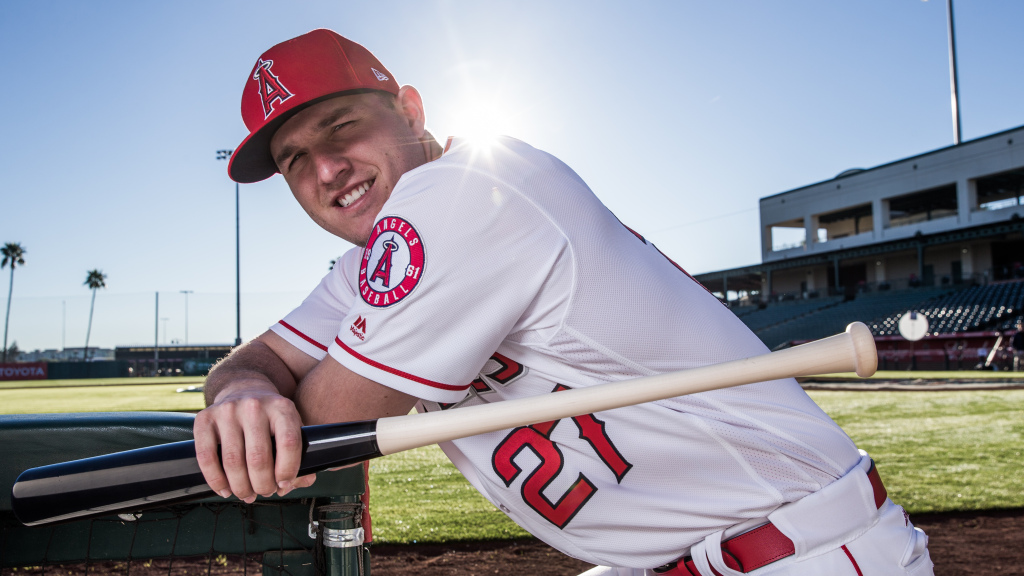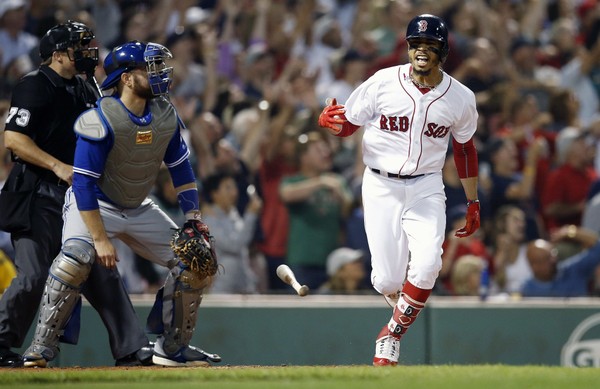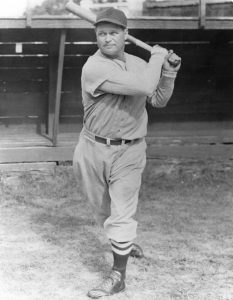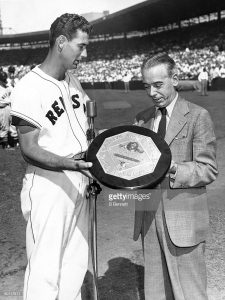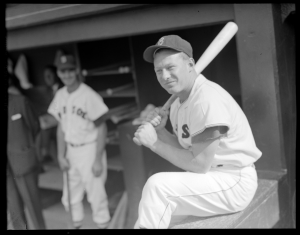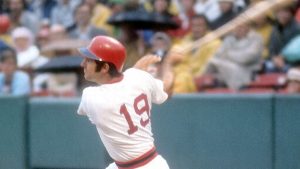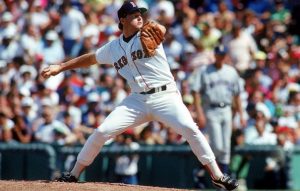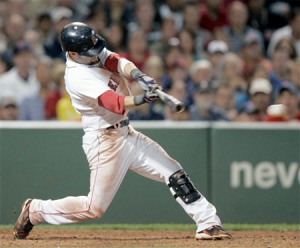With the baseball season arriving, our baseball writers have come together to predict the 2019 award winners. In this article we each choose the winner of the MVP, Cy Young, Rookie of the Year and Manager of the Year Awards for the coming season. We will follow shortly with a second article predicting the division winners and postseason results for the coming season.
American League Most Valuable Player
Thom Howland: Jose Ramirez hit .270 last year with an unlucky 25% hit rate. With his top tier power, peak age, and a Cleveland team gunning for another AL Central crown, the time is ripe for his MVP closeup. Dark horse candidate – Jose Abreu
Scott Frizzell: It is just so hard to pick against Mike Trout. The new $430 million dollar man has finished in the top two every year of his career except one, when he finished fourth after missing six weeks of action. Dark horse candidate – Andrew Benintendi
John Principe: Coming off a year that didn’t end in him winning the MVP, I fully expect Mike Trout to again put up his insane numbers. He’s the closest thing in sports to a perennial lock, and is my pick to stay healthy and win his third MVP. Dark horse candidate – Matt Chapman
Ben Rolfe: Yes, it is the boring pick, but Mike Trout is so far above anyone else in baseball right now it is incredible. If we ignore his small rookie appearance then Trout’s average WAR is 9.2 per year and his numbers are something out of a video game. Dark horse candidate – Luke Voit
Mike Quilty: Mike Trout may be the favorite, but I think Alex Bregman will have a huge year for Houston.
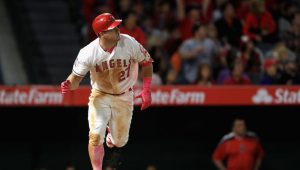
National League Most Valuable Player
Thom Howland: Kris Bryant, the former MVP, is over the injuries that sapped his power last year. The Cubs are being counted out, and he will be at the center of their resurgence. Dark horse candidate – Ronald Acuna
Scott Frizzell: Paul Goldschmidt is leaving the desert for St. Louis this season, and I think he will put up his usual big numbers while helping lead the Cardinals back to the postseason for the first time since 2015. After a dreadful first two months last year, Goldy batted .330 with 26 home runs and a 1.022 OPS from June 1st on. Dark horse candidate – Ronald Acuna
John Principe: Bryce Harper is coming off an okay year, but a great contract, what’s in store for him? The new Philly slugger, to me, is poised to breakout again and have his best season since his MVP year in 2015. Look for Bryce to put up another season with an OPS over 1.000, carry his Phils to an NL East title, and win MVP while he’s at it. Dark horse candidate – Ronald Acuna
Ben Rolfe: Nolan Arenado is one of the best fielders at his position and he hits in Coors Field, which always means his hitting numbers will be right up there. His best chance is if he can lead the Rockies back to the playoffs. Dark horse candidate – Jesus Aguilar
Mike Quilty: Paul Goldschmidt had never won the award before but has been close multiple times as a D-Back. After a trade to St. Louis a change of scenery may be just what he needs.
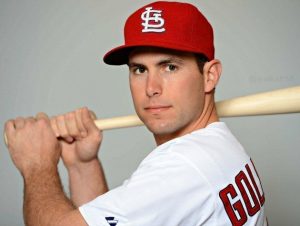
American League Cy Young
Thom Howland: The all-time MLB leader in K/9 and K/BB will put it all together this year. After 6 straight Top 5 AL Cy Young finishes, Chris Sale will finally gain the top spot in 2019. Dark horse candidate – Eduardo Rodriguez
Scott Frizzell: Coming off a fantastic first season in Houston, I will choose Gerrit Cole to win the Cy Young this year. There is no one candidate this year that stands out to me. Dark horse candidate – Shane Bieber
John Principe: Despite struggling in the second half of 2018, I expect a massive year out of Jose Berrios. The bats are a little better behind him, which should work to his advantage. He’s a nasty pitcher with devastating off-speed stuff and will have a good chance to finish at least top 5 in Cy Young voting. Dark horse candidate – Mike Clevinger
Ben Rolfe: The drop in velocity for Chris Sale has me scared, and Gerrit Cole looked so dominant at times last year. He will be a crucial part of a playoff bound rotation and could win 20 games this season.
Mike Quilty: Chris Sale has come in the top five in each of the last six years. Injury last season ended his first shot at the award as he was pitching well. I think Sale will have an amazing year in 2019 and win his first Cy Young.
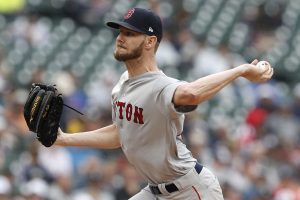
National League Cy Young
Thom Howland: Noah Syndergaard went 4-1 with two shutouts in September of last year. Finally healthy after years of nagging injuries, and with an improved Mets team behind him, the promise of his 97+ MPH fastball and devastating off-speed stuff will bring home the NL Cy Young in 2019. Dark horse candidate – Luis Castillo
Scott Frizzell: I tried Noah Syndergaard last season and instead his teammate won the award. I’m going him again. Syndergaard has the stuff to win it, reaching into the upper-90’s with his fastball with a devastating slider thrown around 92. Dark horse candidate – Walker Buehler
John Principe: Walker Buehler came up and absolutely dominated last year. With Kershaw ready to pass the load (and possibly ace status) on to Buehler, this could be a huge breakout year for him in establishing himself as a premier pitcher in the NL. Dark horse candidate – Kyle Freeland
Ben Rolfe: Patrick Corbin moves to a rotation which is known for pitching success on the back of a great 2018. Pitching alongside Max Scherzer gives a perfect person for him to be compared to all season in order to win this award. Dark horse candidate – Robbie Ray
Mike Quilty: Max Scherzer has won three times already, and had a career high last season with 300 strikeouts. He went 18-7 with a 2.53 era and probably would’ve won his fourth if not for Jacob deGrom and his historic season.
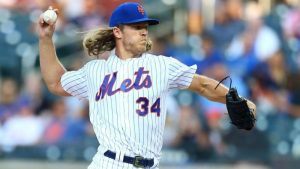
American League Rookie of the Year
Thom Howland: As a 19-year-old, Vladimir Guerrero Jr. rocketed from Rookie Ball all the way to AAA last year. Along the way he managed a .381 average, 20 Home Runs, and 29 Doubles. He’ll be delayed by a few weeks, but this 20-year-old will rake once he makes the show. Dark horse candidate – Josh James
Scott Frizzell: Eloy Jimenez could have a fantastic rookie season, but it’s hard to go against Vladimir Guerrero Jr. after he hit .402 at AA last season. This could shape up similarly to the Ronald Acuna vs Juan Soto race for Rookie of the Year last season. Dark horse candidate – Josh James
John Principe: Possibly the easiest category of all, Vlad Jr. is poised for greatness regardless of when his call-up comes. He’ll be in the show this season, hopefully by the middle of May at the latest. Even with his competitors getting possibly an extra month to pad their stats, Vlad should easily win this award. Dark horse candidate – Yusei Kikuchi
Ben Rolfe: Vladimir Guerrero Jr. is not a particularly fun pick, but I cannot see who else it will be. Guerrero is so talented and in a hitter friendly park, he will have every chance to put up huge numbers. Dark horse candidate – Yusei Kikuchi
Mike Quilty: Vladimir Guerrero Jr, 19-year-old son of HOF Vladimir Guerrero has dominated every level he’s played at to this point. He’s a great talent with great lineage and will now showcase his talent in the big leagues.
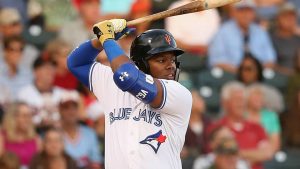
National League Rookie of the Year
Thom Howland: Fernando Tatis Jr. is another precocious 20-year-old. He hit .286 with 16 HR and 22 Doubles last year in AA. The Padres are moving the newly minted $300 Million Dollar Manny Machado to third base so Tatis Jr. can play every day. Dark horse candidate – Pete Alonso
Scott Frizzell: Nick Senzel keeps getting moved around the field due to being blocked at the big league level all over the infield. His bat will play anywhere though. It looks like his new home will be center field for the Reds. Although I think Pete Alonso might slug 30 home runs for the Mets, I believe Senzel will have a more rounded game, batting around .300 with 15-20 home runs and stolen bases. Dark horse candidate – Chris Paddack
John Principe: The opposite of the AL, this race seems wide open to me. With no clear favorite, the Mets slugger Pete Alonso is my choice. Alonso has a brilliant eye, and lots of pop in his bat and should have a chance to play first base right away for the Mets. Dark horse candidate – Nick Senzel
Ben Rolfe: Anyone with Nick Senzel’s talent who gets to play in a hitter friendly park is always going to have a great shot of success. Add in the highlight plays he seems to be capable of making in center field and this could be a fun player to watch this season. Dark horse candidate – Chris Paddack
Mike Quilty: If Alex Reyes can finally stay healthy, he has some of the most electric stuff in the entire sport.
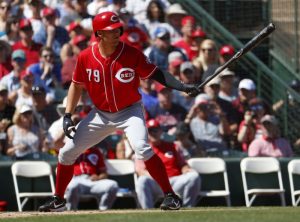
American League Manager of the Year
Thom Howland: The Angels are an afterthought in the AL playoff picture. The A’s funky stadium and Billy Beane’s witchcraft will run out, and Brad Ausmus will have the Angels in the playoffs for the first time since 2014. Dark horse candidate – Kevin Cash
Scott Frizzell: I like Thom’s pick of Brad Ausmus. Mike Scioscia had gone stale and in need of replacing, the fresh face of Ausmus will give the club an extra jolt this season. Although their pitching staff is questionable, their lineup is looking rock solid. Dark horse candidate – Rocco Baldelli
John Principe: After being named a finalist in 2018 due to his innovation and his ability to do lots with very little, Kevin Cash should take the next step and win this year. There’s always the possibility of a team exceeding expectations (i.e. 2018 Athletics) and that manager taking the award, but for now Cash seems like the safest bet. Dark horse candidate – Rocco Baldelli
Ben Rolfe: Rick Renteria could have a perfect storm of young talented players starting to reach their peak and a weak division. The White Sox could push the Indians deep this season and even not making the playoffs that would be enough to get Renteria in consideration for the award. Dark horse candidate – Rocco Baldelli
Mike Quilty: Call me a homer but I’m going with Alex Cora
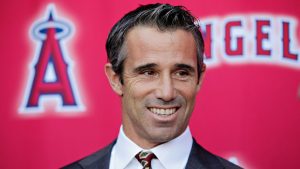
National League Manager of the Year
Thom Howland: Bud Black has two top-five MVP possibilities in Nolan Arenado and Charlie Blackmon. They have promising starters in Jon Gray, German Marquez, and Kyle Freeland. Black will help their pitching and lead them to the NL Playoffs, despite being given a slim 17.5% chance of doing so. Dark horse candidate – Dave Martinez
Scott Frizzell: Last year I said the Phillies would surprise people and hang in the race before ultimately fading. This year, they will win the NL East, and with it Gabe Kapler will take home the Manager of the Year Award. Dark horse candidate – David Bell
John Principe: David Bell has a great opportunity in front of him in his first year leading the Reds. A young lineup that has already proved itself may now have some pitching behind it to support this team. A lot of people have the Reds as the breakout team of 2019, myself included. If they can push themselves into playoff contention in that division, or even over .500, it’s going to be hard not giving this award to Bell. Dark horse candidate – Dave Martinez
Ben Rolfe: This is another case of a perfect storm. Gabe Kapler took a lot of stick for some of his decisions last season. However, now he has a young rotation and an incredibly talented lineup at his fingertips. This team could be in contention for the most wins in the NL. Dark horse candidate – Bud Black
Mike Quilty: I think Dave Roberts will get the Dodgers back to the World Series and have one of the best records. After losing one of his key players, that could be enough to net him this award.
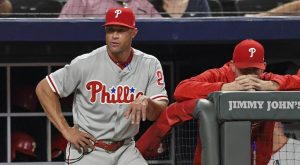
Featured picture taken from CBS Philly
